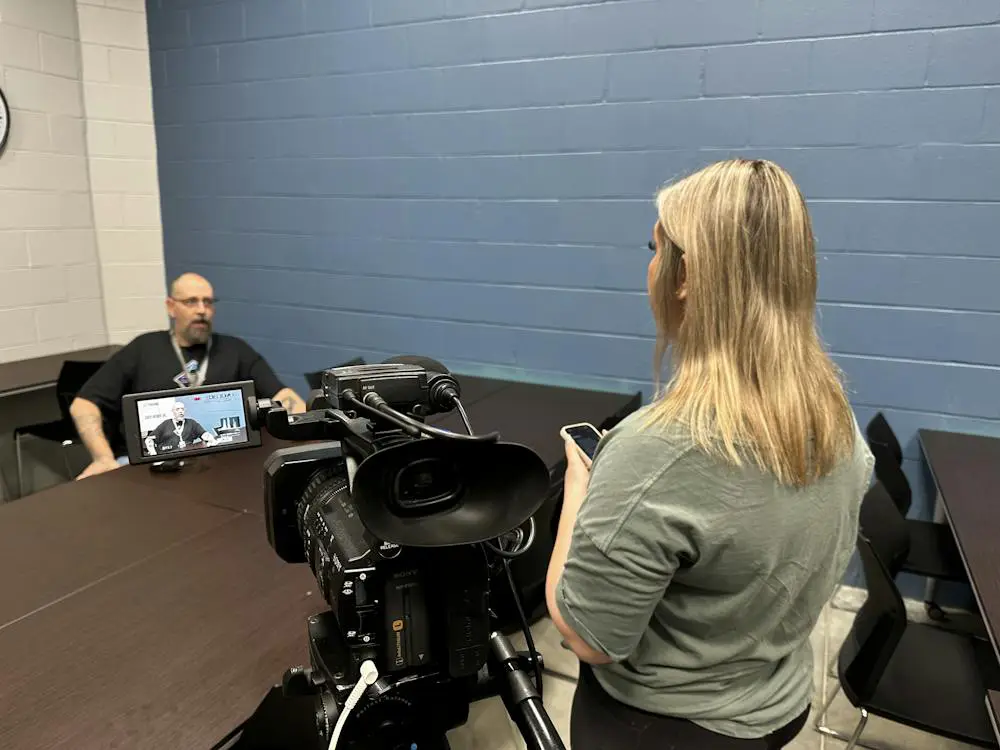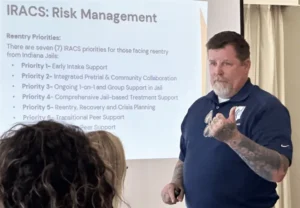MUNCIE, INDIANA —— A new pilot program IRACS (Integrated Reentry and Correctional Support) had its first group of male inmates graduate from the program.
This group learned skills like strategies on sobriety and how to be a productive member of society once out of jail.
“We work on recovery skills, relapse prevention and recovery planning just to name a few,” Larry Musselman said, Engagement coordinator for IRACS.
The main goal of IRACS is to make the jail population less and reduce recidivism among inmates.
IRACS is a voluntary program that at intake every inmate is asked if they would like to participate. If they opt in, they are placed in a separate dorm with only people in the program.
“If somebody gets out and they’ve been a long time user and a long time addict, they don’t have food, they don’t have stable housing, they resort back to what they know. When that happens, people come back to jail,” said Shane Ehrhart, program director.
For four months, men and women twice a week for one hour, sit in a class to learn valuable skills once they get out. The coaches were once in their shoes, all formerly incarcerated.
“If we can intercede and provide these resources to them, it’s gonna stop people from coming back,” Ehrhart said.
10 men graduated two weeks ago from the program and a class of women is set to graduate sometime next week. Inmates say they learned valuable skills to take with them when they get out of jail.
Tracy Kirby, a program participant, said he learned how drugs affect your brain.
“I learned that the drugs that everyone uses actually messes up the chemical imbalance in your system and makes you want to use more.”
“It helped me realize a lot of stuff that I was looking over,” Dimorrea Benning said, another IRACS participant.
Delaware county is one of the five pilot IRACS programs in the state. Eventually, they hope the program goes all over and even beyond Indiana.
“I think sometimes we get clouded into doing things the way that we do them because we’ve always done them that way. With this program, the men and women are seeing a different way and are seeing it doesn’t have to be the way that it always was,” said Musselman.
Coaches for the program say that they already see individuals have come a long way since the beginning, and some are even becoming mentors for the next class.
“Really proud of the guys and all the work that they’ve put in, not just into the program but into themselves,” said Musselman.
Coaches said that IRACS has been well received and successful among inmates. When inmates get released, IRACS does not cut ties with them.
When released, a mentor stays with the individual for 24 to 48 hours to help guide them through. Then, they stay in contact with them for up to 30 days.





